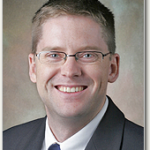Dr. James White and Pastor Jeff Durbin discuss the Early Church Fathers:
Transcript:
James White: They (Roman Catholic Apologists) wanna say, we aren’t really trying to retrieve the early church, and in a sense, they’re correct, because I don’t wanna retrieve the mess at Corinth. Okay. Which continued in Corinth, as we see in First Clement. What I want is the apostolic witness.
Jeff Durbin: Right.
JW: That is the issue. And in a sense, Rome agrees with that, they just simply say that the apostolic witness is not limited to Scripture. You have sacred tradition as the overarching banner. You have the written element of that and you have the oral element of that. And that’s where the issue is.
There’s this oral element and our argument is, you simply cannot demonstrate in any way, shape or form, that what you have defined on the basis of tradition was actually delivered by the Apostles to the first generation of Christians. It’s just not possible. And so that’s where, that’s where everything becomes discombobulated between the two.
But the point is that the Reformation, they were not saying, we’re gonna to start something new, you’ve messed things up so badly, we’re gonna start something new. They weren’t saying that.
They were saying these accretions, these editions of taking place over time where you get someone trying to do something good but they go off track and then that gets built upon by the next person, built upon by next person. And pretty soon you’re in the next County as far as – away from apostolic truth is concerned.
And so there has to be a mechanism of correcting that kind of thing. And once you make the church, the infallible interpreter of both the Bible and tradition, there’s no way of correcting the church any longer because the church now becomes itself infallible.
But this is very, very important because I don’t know about how many you’ve talked to, but I just have lost count of how many people I have talked to and said, “Well, once I started reading early Church Fathers, that’s when I found out I need to become a Catholic because they were Catholics like me, and all the rest of this stuff.” And I’m like, “What exactly were you reading? What exactly were you listening to? What do you do about this?” And I just point out one place and they’re so uncomfortable when they encounter just how variegated and how wide the opinions were.
And I’m like, okay, so if this becomes your authority, if this becomes the lens through which you read Scripture, no wonder you’re gonna deny the perspicuity of Scripture.
JD: Where the Roman Catholics and Protestants, Roman Catholics and the Reformed need to sort of mutually have a certain feeling of frustration with the Fathers. I feel it, and I’ve seen it with Roman Catholics I’ve engaged with, frustration they will have. Where you’ll look at a person and we’ve already said this, but you go, “That’s amazing. That sounds just like Jesus. It sounds just like Paul.” And then he walks to next page – faceplant, “You’re like, that’s frustrating.” And the Roman Catholic has to, if they have integrity, if they have honesty, they have to say they feel the same frustration that these fallible uninspired men, yeah. They say the stuff that I like…
JW: But…
JD: … And then they faceplant.
JW: But dogmatically, they have to believe Satis Cognitum said a long time ago, that the teachings on the papacy are the constant ancient faith of the church. They’ve been told, this is what we’ve taught all along. It’s not and that’s why I’ve said and I think I said this…
JD: And it could be demonstrated that it’s not.
JW: And I said this, I think I said this on my program yesterday. I said, I have for years said show me a single Bishop at the Council of Nicaea, first ecumenical council, an important topic, Nicene Creed (all the rest of that stuff)… show me a single Bishop at the Nicene Council that believed what a modern Roman Catholic has to believe ‘De fide’ by faith as in dogma. And they can’t, because there’s nobody there that believed what a modern Roman Catholic has to believe.
Now there were variances even amongst them, but the point is that the men who gave us the Nicene Creed did not believe in the Bodily Assumption of Mary and Immaculate Conception and Papal infallibility – if they believed in Papal infallibility, why were they even getting together? It doesn’t make any sense. And the whole idea that, well, the Nicene Council could only have been accepted if the Pope approved it, that’s rubbish. That is pure anachronism. So they have to massage the data. And that’s why I’ve said, hey when I teach Church history, I can let the early Church Fathers be the early Church Fathers.
JD: Just be honest about it.
JW: Just, just be who they were. I don’t have a system saying to me, you need to make them all into your mirror images back then or your entire system is actually false.
JD: That’s the point. Having the integrity to say, ‘they’re frustrating.’ An honest Roman Catholic in an honest Reformed person should say that. There, it’s frustrating. It’s frustrating coz there’s moments of great glory and moments of great..
JW: Right.
JD: Big face-plants.

